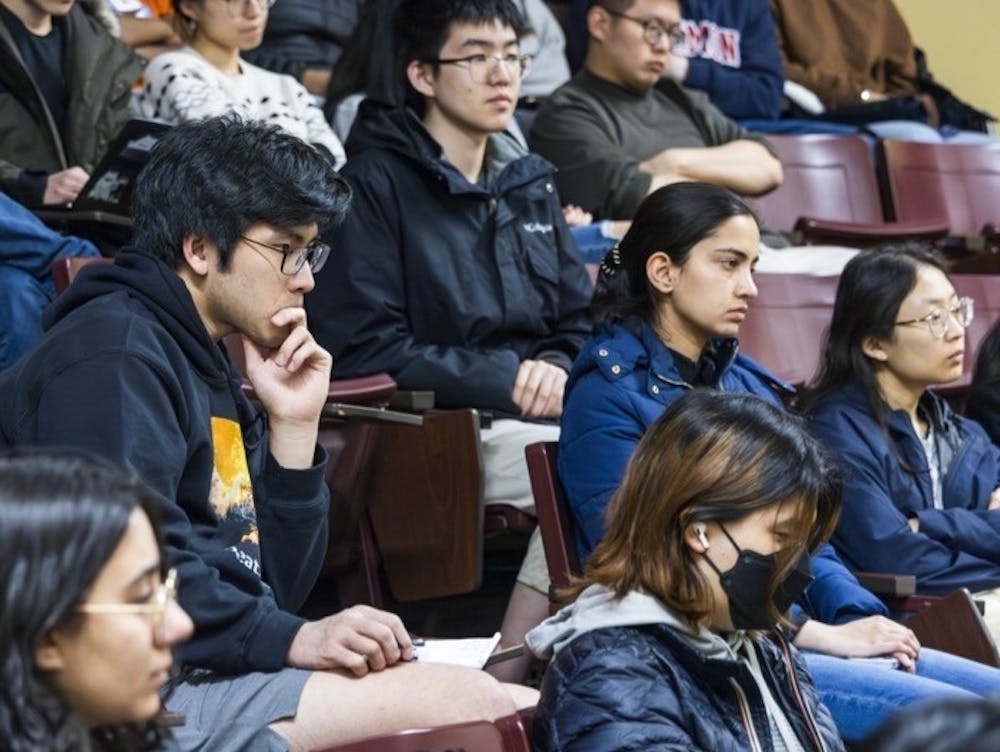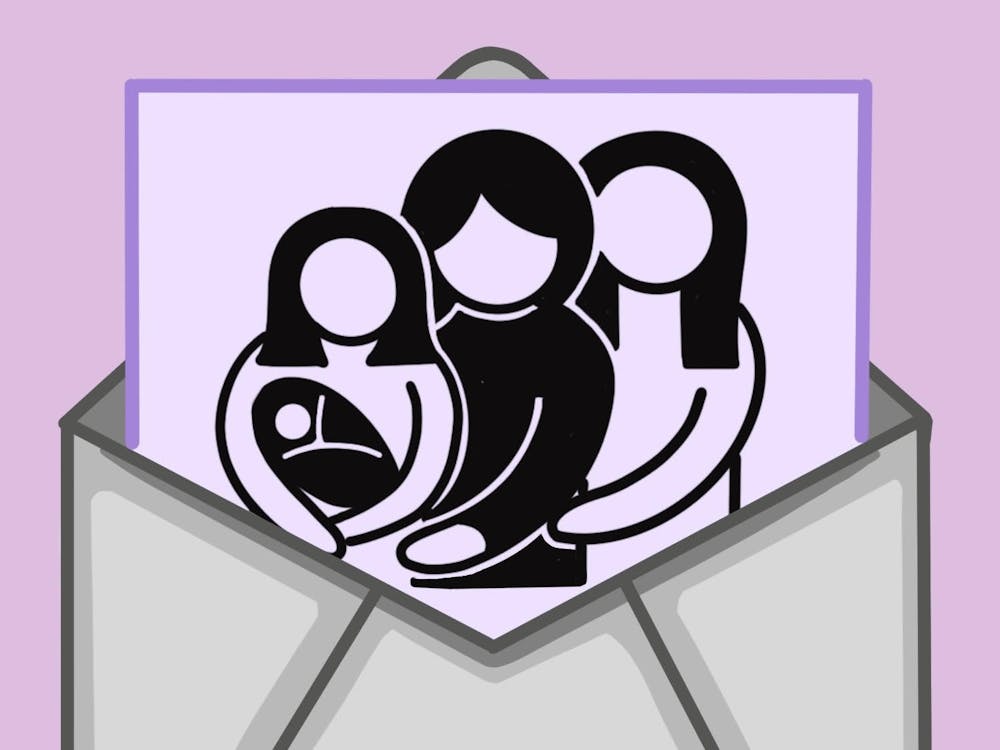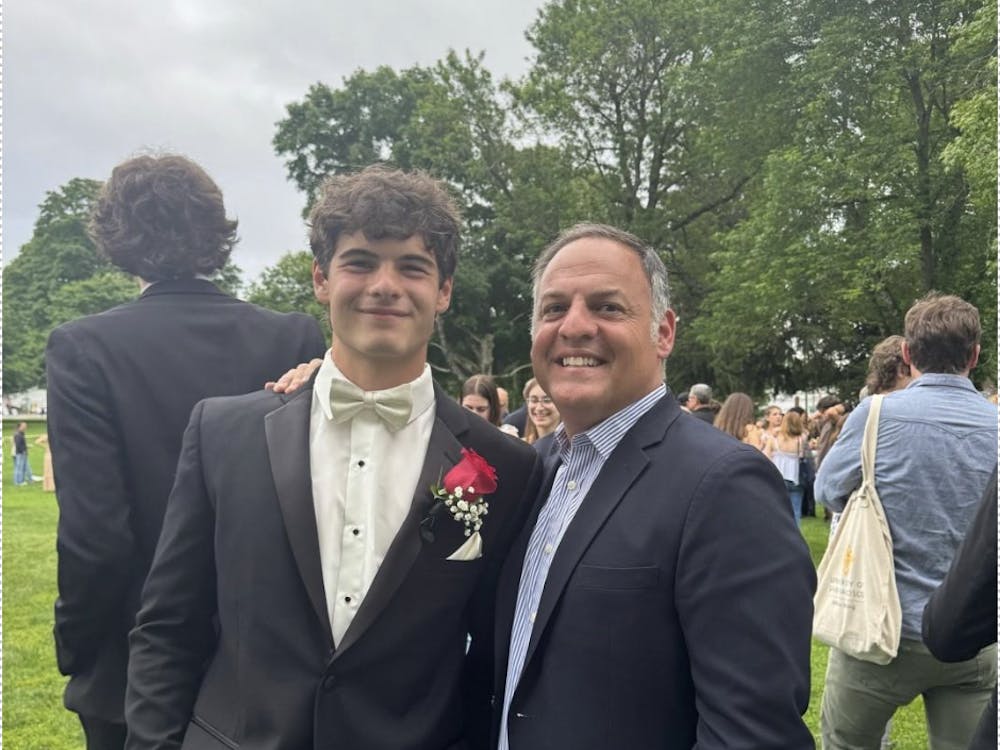
Why do we even try? As a graduating senior, I’ve asked myself this question many times. Sleepless nights spent cramming for Chinese exams and finishing English papers have left me wondering why I bother to put so much effort into my work and whether this effort will be worth it in the end.
Frustrated by these kinds of feelings, I and a few others came together to plan an event called a Veritas Forum that would address and unpack the questions of motivation and effort that many students face.
Started at Harvard in 1992, Veritas Forums are events held at college campuses across the country that host experts from different worldviews to discuss life’s biggest questions. Although the organization is led by Christians, the events are designed to encourage dialogue from all perspectives, in the hopes of cultivating nuanced and intricate ideas. Past forums have covered topics like the intersections between science and faith, the purpose of life and finding meaning in death.
“Why do we even try?” became the title of our forum, held at Maryland 110 on the Monday before spring break. This event — subtitled “A Conversation on Effort, Struggle and the Purpose of Life” — was our attempt to digest the seemingly inevitable feelings of burnout, frustration and confusion that every student experiences at some point in their education.
Even in the process of planning this forum, these feelings of frustration and aimlessness threatened to surface. When scheduling conflicts between our speakers led to multiple changes in our plans, I found it difficult to stifle disappointment and wondered if the event would even happen. Zoom calls and email chains spent hashing out minute details — the wording of questions, marketing strategies, even which restaurant to have our team dinner — often became the focus of our attention, almost overshadowing our original goals for the event.
It was the energy and focus of my teammates, who initially formed the idea for this forum and reached out to me and others to join in planning it, that reminded me why we came together in the first place. We wanted to create an event that would open dialogue about an issue we all cared about, to deepen our collective understanding of our work and lives as students and human beings. When the day of the event came, I was impressed and inspired by the thoughtful conversation between the speakers, both during our team dinner before the forum and during the forum itself.
On the day of the forum, we arrived early to set up. As we tested mics and pulled up the slides, students began to file into the room, filling up the lecture hall to almost full capacity. Members of the audience chatted with each other, placed backpacks on neighboring chairs to save seats for their friends and pulled up the event info to learn more about the speakers. Nearing the start time for our forum, one of our teammates took the stand and announced our speakers and our student moderator.
Professor Lydia Dugdale, a professor of medicine and bioethics from Columbia University, shared an interesting perspective as a physician and educator. She discussed how she didn’t actually like being a physician, and instead, her choice of career was initiated by the strong conviction that God had called her to this path. “Calling” — the idea that our efforts are not just shots in the dark but that we could be working towards something that we’re meant to do — became a point of interest in the conversation.
Professor Anand Pandian, a professor of Anthropology at Hopkins, talked about calling in a slightly different way. As a non-religious person, Pandian framed calling not as the will of a higher being but instead as a way of thinking about life in terms of story. He shared an especially profound observation that people find the most meaning and purpose in their lives when they are guided by a larger story.
As a Writing Seminars major and a writer, I’m especially familiar with the power of narrative. Storytelling is one of our most natural impulses. Our cravings for meaning and plot push us to ask questions like “Why do we even try” and other big questions that form the basis of what it means to be human.
As I near commencement, questions of purpose and meaning feel even more pressing. The pressure to get everything right from the start — to be in the right career, know the right things, meet the right person — can feel overwhelming. I’ve begun to wonder what larger story I might be part of and how I can weave the different parts of my life and personality together to discover my calling. I’ve always loved writing, but I’m also hesitant to say that just because I love something, it must be my calling. I’m drawn to the comments made by the speakers that calling is not always related to a career. My calling might not be any particular job I obtain but instead the impact I have on others through my relationships with them or the joy I spread through my activities outside of work.
I’m also drawn to the reminder from both speakers to always take the time to rest. Stepping back from work and deciding when to stop, is necessary for doing good work and putting good effort into work. Often, a question like “Why do we even try” becomes especially pressing when we’re unable to find time to rest. Without a break, we feel more desperate or hopeless than ever, and that reset button can be just the thing we need to feel more assured and collected.
Figuring out why I try and what I’m working towards isn’t a cut-and-dry affair. I don’t expect to suddenly have all the answers in a semester, but the endeavor of responding to these personal questions is a worthy one, and I hope other students at Hopkins are taking the time to step back and consider these questions as well.
Aliza Li is an alum of Johns Hopkins University.





